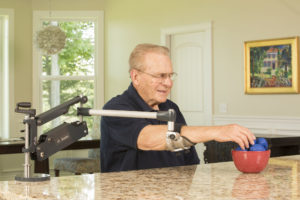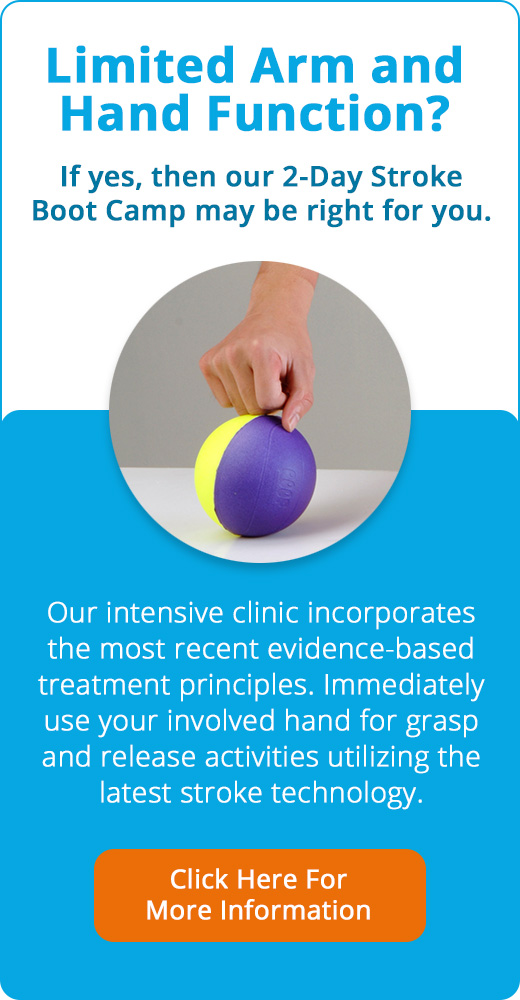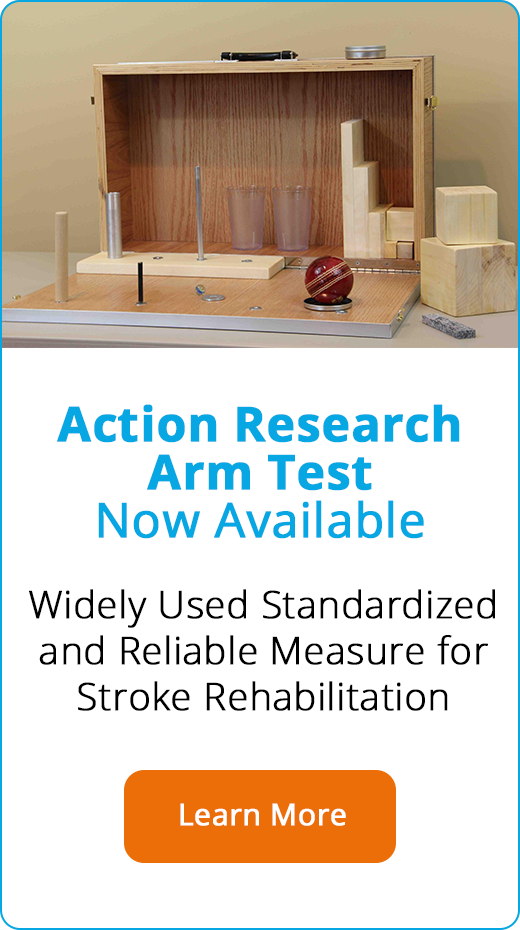Stroke Arm Treatment: Using Mobile Arm Supports For Function and Exercise.
NeuroRehab Team
Tuesday, May 24th, 2016
Arm and HandMobile Arm SupportsNeuroplasticity

Stroke is one of the main causes of disability throughout the world. Due to hemorrhagic or ischemic damage to brain, many clients will suffer from impaired strength leading to poor gross motor movements and motor planning. In order to perform every day tasks such as grooming, eating, typing on a computer, or writing, adequate proximal strength (shoulder/elbow) is required to allow for normal distal control (hand/wrist).
Individuals that lack proximal strength will be force to either compensate for their impairment or use their unaffected side to maximize their independence. Thankfully, through the use of unweighting technology (i.e., gravity compensation), clients also have a 3rd option – Mobile Arm Supports.

Proximal weakness due to stroke.
A mobile arm support (MAS) is a gravity supported mechanical device mounted on wheelchairs or tables used to support the weak upper limb to improve function. These devices allow patients with proximal weakness to perform ADL’s such as feeding, hygiene, grooming, and writing. The MAS counteracts the effects of gravity while facilitating and promoting functional movement. In addition to using a MAS for function, research has shown that gravity compensation devices are also effective for improving motor control, decreasing spasticity, minimizing fatigue and compensation. Therefore, allowing more repetitions during the day which can lead to driving neural changes.
A recent study by Runnels et al. (2015), showed that using the SaeboMAS unweighting device resulted in muscle tone reduction across all muscles. This effect was greatest in the anti-gravity muscle anterior deltoid, and evident in biceps brachia and pronator teres as well. A study by Prange et al. (2012) concluded that gravity supported arm exercises can improve arm movement ability after chronic severe hemiparesis after 24 one hour treatment sessions.

Gravity compensation devices such as mobile arm supports can lead to improved motor recovery and functional independence. Whether the client is seeking to unweight the arm to fulfill some activities of daily living or wanting a little assistance or resistance to challenge his or her strength, mobile arm supports can accomplish both functional and remedial needs.
Click below to find various mobile arm supports that are currently on the market.

